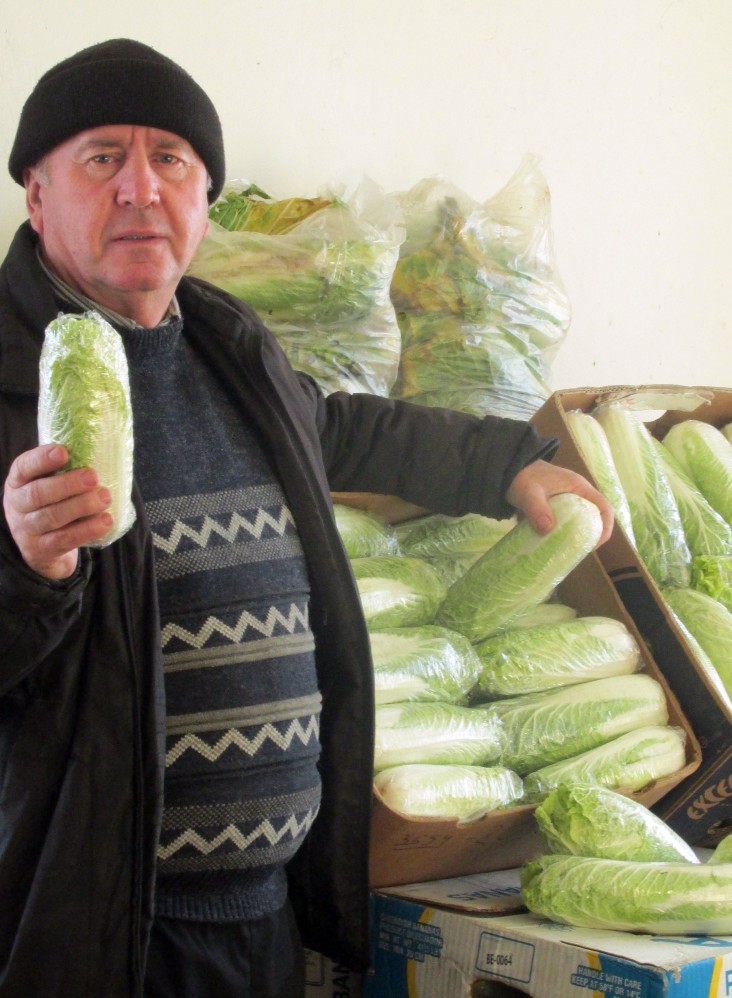
Jan. 2015—Most Ukrainian small and medium sized agriculture producers (SMPs) are forced to sell their produce at the height of the harvest season in local informal markets or through rent-seeking middlemen due to a lack of market infrastructure and logistics systems. At the mercy of buyers, producers often feel compelled to accept whatever price they are offered or risk spoiling of their unsold fruits and vegetables.
Russia’s trade bans on Ukrainian agriculture have further exacerbated producers’ woes.
To help Ukraіnian farmers get a fair price for their products, USAID’s AgroInvest project teamed up with Shuvar Wholesale Market in Lviv, located across the border from target markets in Western Europe. Together they hosted a series of demonstration site visits in 2014 where farmers from across Ukraine came to Shuvar. The two-day demonstration site visits showed participants how to use market channels and take advantage of wholesale markets.
As a result of these site visits and trainings, several SMPs signed contracts with Shuvar to sell their produce remotely. The system is simple: Upon harvest, produce is transported to Shuvar Market, where it is stored in a secure cool or dry storage facility. The SMPs can access a live video feed to watch their produce over 24-hour continuous closed circuit television. Prior to completing a sale, Shuvar staff send the buyer’s offer to the client producer/seller for approval, charging a flat 5 percent service fee. Buyers originate from within Ukraine as well as countries in the Baltic region and Western Europe.
This arrangement offers SMPs assurance that their produce is secure and allows them to focus their energy on farming instead of sales. Agreements with wholesalers also provide reassurance to producers that, after harvest, they can promptly find buyers. In Kherson oblast alone, SMPs entered into agreements with Shuvar for 160 tons of tomatoes, 300 tons of carrots, 50 tons of beets, 50 tons of onions, 1 ton of broccoli, 2 tons of eggplants, 10 tons of radishes and 120 tons of watermelons during the 2014 post-harvest season.
“Through USAID AgroInvest linking farmers in Kherson to Shuvar Market, I have been able to sell 120 tons of watermelons remotely,” said Anatoly Merkotyan, a farmer from Kherson oblast. “This is great, and I am very pleased. In Kherson, watermelons are hard to sell, but in Lviv, people are happy to buy them for local consumption or to resell them in Western Europe. In November [2014], we collected cabbage and sold it through Shuvar and, of course, we plan to expand our business relationship in the coming year.”
AgroInvest, which runs from 2011 to 2016, has provided many SMPs with their first opportunity to sell to traders on European markets rather than Russian markets, protecting their livelihoods amid Russia’s import embargo. By helping SMPs get their goods to market faster, more easily, and in compliance with Western European food safety requirements, USAID AgroInvest is transforming the lives of Ukrainian farmers.
LINKS
Follow @USAIDUkraine, on Facebook







Comment
Make a general inquiry or suggest an improvement.